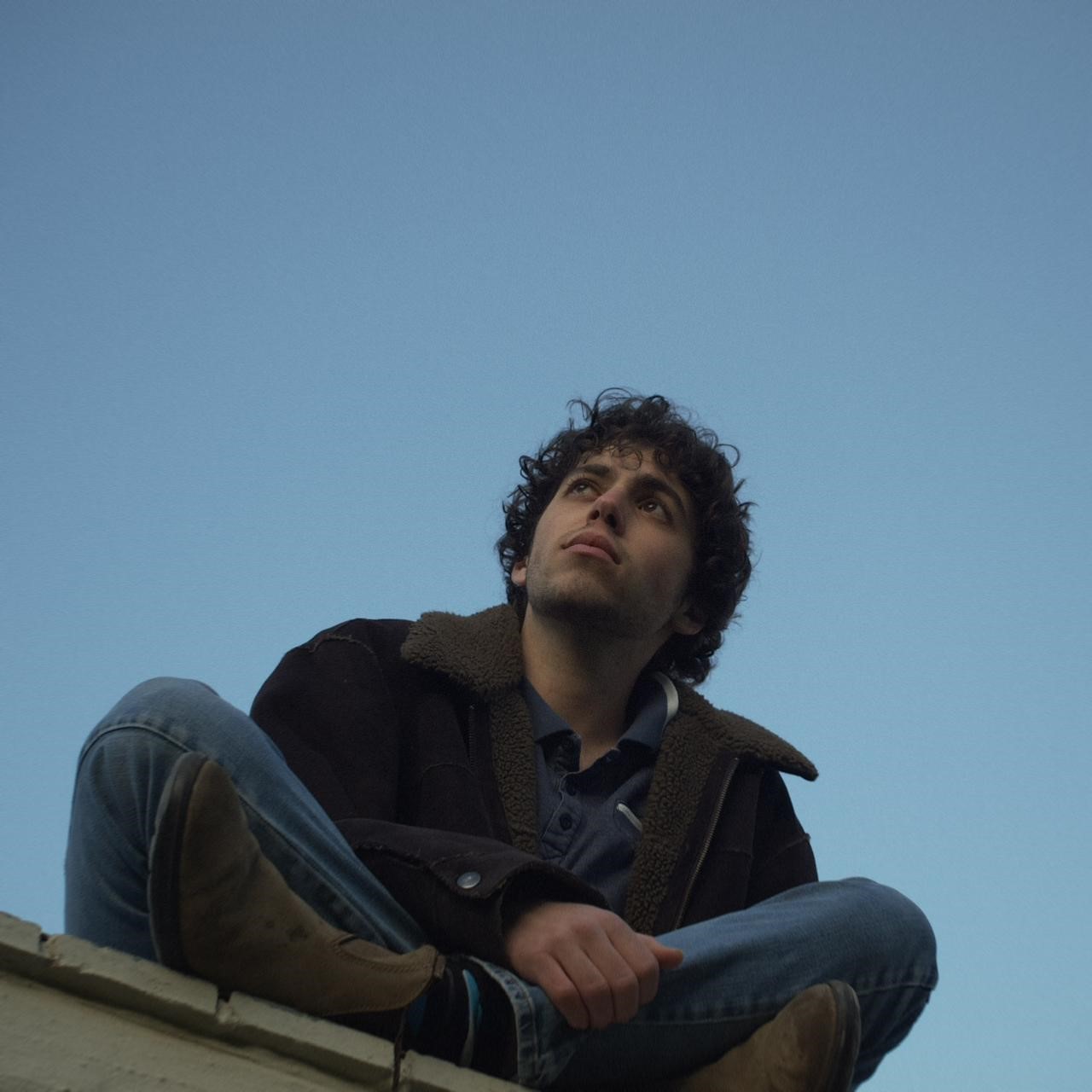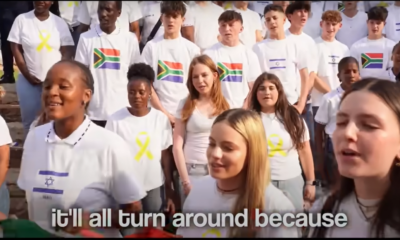
Featured Item

Basserabie goes mainstream with new hit single
When Johannesburg student Yishai Basserabie’s single My Own Skin hit streaming platforms Apple Music, YouTube Music, and Spotify recently, it was a milestone for this talented young singer-songwriter as well as the family, friends, and community that have supported him along the way.
“I’ve been sitting on this song for about a year watching it morph into what it is today,” says Basserabie (21). “Now that it’s done, I’m just happy that people beside my mom get to hear it! It’s such a weird feeling seeing my name on these platforms after so much work went into the song. It feels like finally letting it out.”
Music has always played an important role in his life. “Music is my tool for defining periods of my life and guiding my emotions,” he says. “One of my most prized possessions is my music library. If I scroll through it, I’m immediately taken back to the moment I was listening to those songs. I feel what I was feeling, see what I was seeing, even smell what I was smelling. Sometimes a song can be played only in a particular context, which means that if I ever need to feel that emotion, all I need to do is play the song.”
Basserabie grew up in Johannesburg and went to Yeshiva College. “I’m starting to write and make music, which I love, while doing electrical engineering at Wits [the University of the Witwatersrand] as a side hustle!” he says. “I’ve been singing my whole life, but what really accelerated my love for it and my abilities is Tamzyn Lombard, my vocal coach of 11 years. She’s seen me go through stage-fright-stricken student shows to school choir concerts to now giving me the confidence to share my music.
“Sometimes songs take forever to write, but this one was quick,” he says. “It was really late one night, and I couldn’t fall asleep – my mind was buzzing. I sat up, saw my guitar, and thought that I might as well play if I couldn’t sleep. So I sat on my bedroom floor and wrote My Own Skin. I fell asleep straight after that, and in the morning, the process of tweaking and rewriting began.”
He says the song’s meaning is unique to each person who listens to it. “The song will be about what it will be about to each person. It’s funny because I feel like there’s a disconnect between the lyrics and the music of the song. What you hear now isn’t how it was originally written. It started off as a typical slow, sad, open-chorded guitar song, but it’s morphed into sounding like what I think it would feel like if someone was going through the difficult process of feeling comfortable inside their own skin. It’s quite uplifting in the end.”
He didn’t aim to launch it as a single. “When I wrote My Own Skin and all the songs I had written up until that point, it was just for fun. That is, until I got the push I needed from Tamzyn to start thinking about producing them and putting them out there. It’s quite scary to do that. I almost didn’t do it because of the thought of the reactions of some people. But I did in the end, thanks to the support of Tamzyn, my friends, and my family.
“There are two stages to making a song,” he says, “the writing and the production. The writing of My Own Skin somehow happened quickly – that’s not usually the case – and over about a week, I was happy with the structure, lyrics, and melody.
“Once you have the outline and feel of the song, production begins,” he says. “Tamzyn and RJ Benjamin were kind enough to reach out to a producer they know in the industry, Ewald van Rensburg, who is a legend.
“This led to a week-long trip to Potchefstroom to spend all day in Ewald’s studio, with my little guesthouse trying hard to make me a kosher breakfast! Production was intense: hours of recording, re-recording, and tweaking; and layer upon layer of instrumentation that takes weeks to finalise. Once that’s done, the song goes off to be mastered, where it’s prepared for streaming and radio.”
Getting it onto streaming platforms was “much more complicated than I thought. There’s registration with the South African Music Rights Organisation, distribution services, and the like. There’s bar codes, copyrights, and metadata to process. I know absolutely nothing about any of this, and so I was lucky that RJ Benjamin agreed to guide me through the process. I’m incredibly grateful.”
He hopes the song is well received. “To be perfectly honest, it’s still really surprising seeing my name on all these platforms. I’ve loved getting random videos of people listening to it – often people I haven’t seen in ages, so that’s been special. It’s been a great way to reconnect to people I otherwise wouldn’t have.”
His primary goal was simple: “To have the song played at the Bnei Akiva campsite.” That has already happened. Chaverim visited the site recently, and sent videos to Basserabie of them listening to the song. Now, he hopes it will blast out of the speakers at machaneh at the end of the year.
He says that the toughest aspect of this journey is “how difficult it is to put yourself out there”. His advice to others wanting to do the same is that “if you like what you’ve made, then you just need to trust that it will find the right people”.
He’s not sure whether he’ll make music full-time. “At the moment, it’s a passion project – just a lot of fun. Who knows though, let’s see how many people listen to the song after reading this and I’ll get back to you!” he quips. “I’ll definitely release more songs. There’s another one already produced, and then hopefully more on the way.”
To the community, he says, “Thank you all for all the support you guys have given me, online and off. I appreciate it more than you know.”










